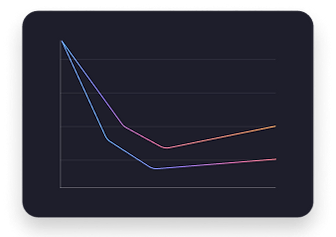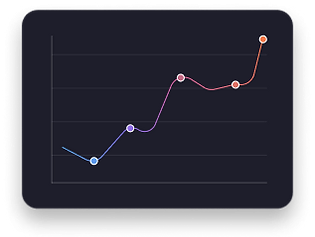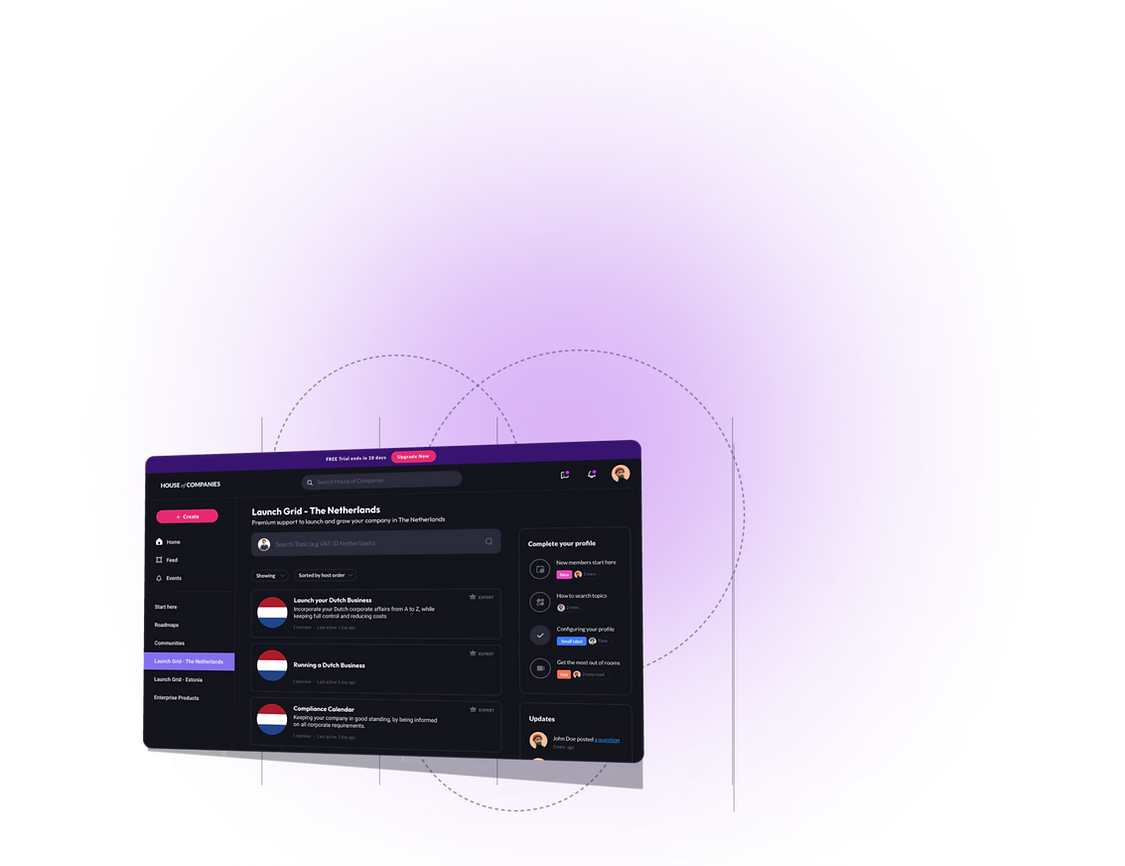
Relocating staff to Germany as an Employer of Record is now easier and cost-effective. Instead of paying over €600 per month to PEOs, Launch Grid offers a streamlined solution, allowing you to register as an overseas employer for just around €10 per employee monthly. Once registered, you can manage payroll and grow your company efficiently, avoiding the complexities of setting up a local entity.




The Intra-Corporate Transfer (ICT) permit, introduced by the EU ICT Directive (2014/66/EU) and implemented in German law through §19 of the Residence Act (AufenthG), facilitates the temporary transfer of non-EU employees to Germany within multinational companies. This permit is designed for managers, specialists, and trainees.
Key features of the ICT permit include:
Validity: Up to 3 years for managers and specialists, 1 year for trainees
Intra-EU mobility: Allows short-term work in other EU countries
Family reunification: Spouses and children can join the ICT permit holder
To qualify, employees must have been employed by the company for at least 6 months (3 months for trainees) and meet specific salary requirements.
The EU Blue Card, governed by §19a AufenthG, is a residence title for highly qualified professionals from non-EU countries. It’s particularly attractive due to its streamlined application process and potential for accelerated permanent residency.
Eligibility criteria include:
A recognized university degree
A job offer with a minimum annual gross salary of €56,800 (2023 figure, adjusted annually)
For shortage occupations (IT, engineering, etc.), the threshold is lower at €44,304
The EU Blue Card offers a path to permanent residency after 33 months, or 21 months with B1 level German language skills.
Germany welcomes innovative entrepreneurs and investors through various residency options:
Entrepreneur Visa (§21 AufenthG): For those starting a business in Germany. Requirements include a viable business plan, sufficient capital, and relevance to the local economy.
Investor Visa: While not explicitly defined in German law, significant investments (typically €1 million+) can lead to residency under §21 AufenthG.
Startup Visa: A subcategory of the Entrepreneur Visa, tailored for innovative, scalable business models. It often requires support from a recognized startup incubator or accelerator.
These options typically require thorough documentation, including business plans, proof of funding, and sometimes local job creation projections.
The residency application process in Germany typically involves the following steps:
Determine the appropriate visa/permit type based on your situation
Gather required documents (varies by permit type)
Schedule an appointment with the German embassy/consulate in your home country
Submit your application and attend the appointment
Upon approval, enter Germany and register your residence
Apply for your residence permit at the local Foreigners’ Authority (Ausländerbehörde)
It’s advisable to start this process well in advance of your planned move, as processing times can vary significantly.
German immigration law is primarily governed by the Residence Act (AufenthG) and the Employment Regulation (BeschV). Recent changes include:
Skilled Immigration Act (2020): Eased restrictions for skilled workers from non-EU countries
EU ICT Directive implementation (2017): Introduced the ICT permit
Upcoming changes (2023/2024): Proposed “opportunity card” for job seekers and simplified recognition of foreign qualifications
Stay informed about these regulations through official sources like the Federal Office for Migration and Refugees (BAMF) website.
German immigration law is primarily governed by the Residence Act (AufenthG) and the Employment Regulation (BeschV). Recent changes include:
Skilled Immigration Act (2020): Eased restrictions for skilled workers from non-EU countries
EU ICT Directive implementation (2017): Introduced the ICT permit
Upcoming changes (2023/2024): Proposed “opportunity card” for job seekers and simplified recognition of foreign qualifications
Stay informed about these regulations through official sources like the Federal Office for Migration and Refugees (BAMF) website.
Many organizations, including the German House of Companies, offer comprehensive expat services to facilitate a smooth transition to life in Germany. These may include:
Assistance with residence registration (Anmeldung)
Help in finding accommodation
Support in opening bank accounts
Guidance on health insurance options
Language courses and cultural integration programs
Utilizing these services can significantly reduce the stress associated with international relocation.
Germany offers a wealth of opportunities for immigrant entrepreneurs and professionals:
Tech startups: Cities like Berlin and Munich are thriving startup hubs
Green energy sector: Germany’s commitment to renewable energy creates numerous opportunities
Healthcare and biotech: An aging population drives demand in these sectors
Engineering and manufacturing: Germany’s reputation for quality creates ongoing demand for skilled professionals
The German House of Companies can provide valuable insights into sector-specific opportunities and regulatory requirements for foreign nationals entering the German market. By understanding the legal framework and leveraging available services, international professionals and businesses can successfully establish themselves in one of Europe’s most dynamic economies.
1. What are the key requirements for relocating staff to Germany?
To relocate staff to Germany, key requirements include obtaining the appropriate visa or residence permit, such as the Intra-Corporate Transfer (ICT) permit or the EU Blue Card. Employees must meet specific criteria, including having a valid employment contract, meeting salary thresholds, and, in some cases, possessing specific qualifications or work experience.
2. Can the relocation process be completed entirely in person, or are there legal requirements for submitting documentation by mail or through a notary?
The relocation process can generally be completed in person. However, certain documents may need to be submitted by mail or through a notary, depending on the type of permit and specific circumstances. It’s essential to consult with the relevant German authorities or a legal expert to ensure compliance with all requirements.
3. How long does it typically take to obtain a residence permit for relocated staff in Germany?
The processing time for obtaining a residence permit in Germany can vary depending on the type of permit and the specific circumstances of the application. On average, it can take several weeks to a few months. It’s advisable to start the application process well in advance of the planned relocation date to account for any potential delays.
4. Are family members allowed to join relocated staff in Germany?
Yes, family members, including spouses and children, are generally allowed to join relocated staff in Germany. This is possible through family reunification provisions associated with permits like the ICT permit and the EU Blue Card. Family members may need to apply for their own residence permits and meet specific requirements, such as proof of sufficient financial resources and health insurance.
“Amazon required me to register a local branch to expand to the EU. With the German House of Companies, this was a piece of cake, and no accountant was needed!”
 Amazon Trader
Amazon Trader“Starting my tech startup in Germany seemed daunting at first, but the German House of Companies provided exceptional support. Their expertise and dedication made all the difference.”
 Tech Startup
Tech Startup“Relocating to Germany for work was a significant move for me and my family. The German House of Companies’ expat services were invaluable in making this transition smooth.”
 IT firm
IT firmOur consultants are licensed to practice in Germany and have specific expertise in immigration law. We offer end-to-end support, from initial consultation to follow-up assistance. Our services are designed to be accessible and user-friendly, ensuring you receive the help you need efficiently.


Learn More →


Learn More →


Learn More →
Under German law, particularly the Handelsgesetzbuch (HGB) and the Act on Electronic Commercial Registers (EHUG), notarization is generally required for branch registration. Although some registries may allow in-person submission, notarized documents are typically needed to verify authenticity and ensure compliance. Therefore, while you may be able to meet with the Company Registrar in person, it is legally advisable to submit documents through a notary.
The ICT permit allows for the transfer of managers, specialists, and trainees within multinational companies to Germany. The employee must have worked for the company for at least six months, and the company must prove the employee’s qualifications. The permit is granted for up to three years for managers and specialists, and one year for trainees.
To apply for the European Blue Card, you must hold a university degree and have a job offer in Germany with a salary that meets the minimum threshold of €56,400 annually (or €43,992 for shortage occupations). Applications are made through the German consulate in your home country, and once granted, the Blue Card offers a fast track to permanent residency.
To obtain a residency permit as an entrepreneur in Germany under Section 21 of the Residence Act, you must demonstrate a solid business plan, sufficient financial resources, and the potential to positively impact the German economy. Additionally, you may need to show that your business will create local jobs or offer innovative solutions.
The processing time for a residency permit for highly skilled workers typically takes between 4 to 12 weeks. However, this can vary depending on the complexity of the application, the applicant’s qualifications, and the workload of the local immigration authorities.
Feel welcome, and try out our solutions and community,
to bring your business a step closer
to international expansion.

Got questions?
Lets talk about your options
Stay updated with the latest news and exclusive offers. Subscribe to our newsletter for regular insights delivered to your inbox!